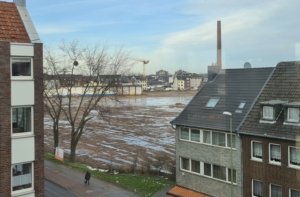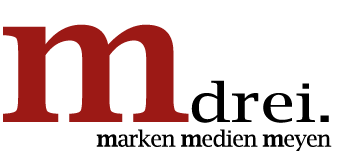Trademark law prevents Inbusstrasse in Neuss? Uh, no!
There was a heated debate in the City of Neuss's culture committee about what the streets on the former Bauer and Schaurte factory site on the southern Furth should be called.
Bauer und Schaurte was one of the largest and best-known companies in Neuss history. Probably the most important product was the Inhexagon socket (from) Bauer und Schaurte, which most people probably know by the acronym "Allen key" know. The Allen key is probably the best-known product ever to come from Neuss - even if Leuchtenberg sauerkraut and Novesia chocolate were perhaps more useful products in the long run.
It is therefore understandable that some local politicians favor the name "Inbusstrasse" for one of the streets in the new residential area. The administration, however, apparently favors the (anonymous and interchangeable) "Werksstraße" or "Dreherei".
Why are we writing about this? Because (according to the administration) the trademark rights of "Inbus IP GmbH" to "Inbus" allegedly speak against it. This has already been (negatively) examined...
EDIT: According to the administration, this is incorrect. They merely mentioned that the trademark owner should also be asked.
Who checks this? And who knows anything about it and rejects it?
Trademark rights to the Allen key
In fact, Inbus IP GmbH holds the rights to the trademark "Inbus" from 1935, which is registered for "small hardware, in particular screws and nuts".
And yet the argument of trademark infringement appears to be a sham. In any case, this argument did not prevent Daimlerstrasse or Benzstrasse, Porschestrasse or Boschstrasse from being built in Neuss, and the Bolssiedlung estate also has a well-known namesake.
Does a street name infringe a trademark?
Branded streets" are also booming in other cities. And for good reason: a street cannot infringe a brand. At least not if it is a public, urban street.
§ Section 14 (2) MarkenG:
Third parties are prohibited from using the trademark without the consent of the trademark owner. business dealings in relation to goods or services
- 1.
- 2.
- 3.
First of all, when naming a street, the city would have to do business. It must be an outwardly prominent act to promote one's own or another's sales. The sovereign act of "street naming" does not fulfill this criterion if one assumes that hordes of screw manufacturers and dealers are not to settle in the residential area.
Then the Utilization of the sign "brand-wise", i.e. to designate a product in such a way that it can be distinguished from the products of other companies. This is also not the case here. The special protection of the well-known trademark (No. 3) does not help, because even there a product reference is required, even if the products may well be dissimilar.
The ECJ has recently extended trademark use excessively and thus incriminated originally permitted brand names. It does not only place the Origin function the brand in the foreground, but also the Advertising function and the Investment protection function. And the functions mentioned above make it much easier to create a Trademark infringement even if a sign is not used in relation to a product.
But even the aforementioned "additional" functions of the trademark are not affected; under no conceivable circumstances is the value of the trademark even affected by the naming of the street. Even the assumption of an economic connection between Inbus IP GmbH and Inbusstrasse in Neuss is remote.
OLG Hamburg puts the tiger in the tank - and out of the Hamburg Parliament
In the late 1990s, the Higher Regional Court of Hamburg invented something like a supra-brand emergency and "rescued" a well-known petrol station chain from the exploitation of a slogan by a local politician who wanted to put the "tiger in the citizenship".
The petrol station slogan is so well known that it is part of the "established and practiced commercial enterprise" - protected by § 823 ABs. 1 BGB - and therefore may not be devalued by a local politician.
However, the Hanseatic Higher Regional Court also weighed up the interests at stake and suggested to attentive readers that a politician from a nationalist party might be more damaging to the image of the company than a politician from a popular party.
Such a Balancing of interests would also be sky-high in Neuss in favor of the city fail. The intervention intensity fluctuates somewhere around zero, while the historical value of the brand for the city is serious.
Bring on the Inbus road!
There is therefore absolutely no legal argument against an Inbus road.
EDIT: There were a few offensive lines at this point, for which we apologize to the person(s) concerned.
Incidentally, the author of these lines was sitting with his office in view, as the following picture shows:

